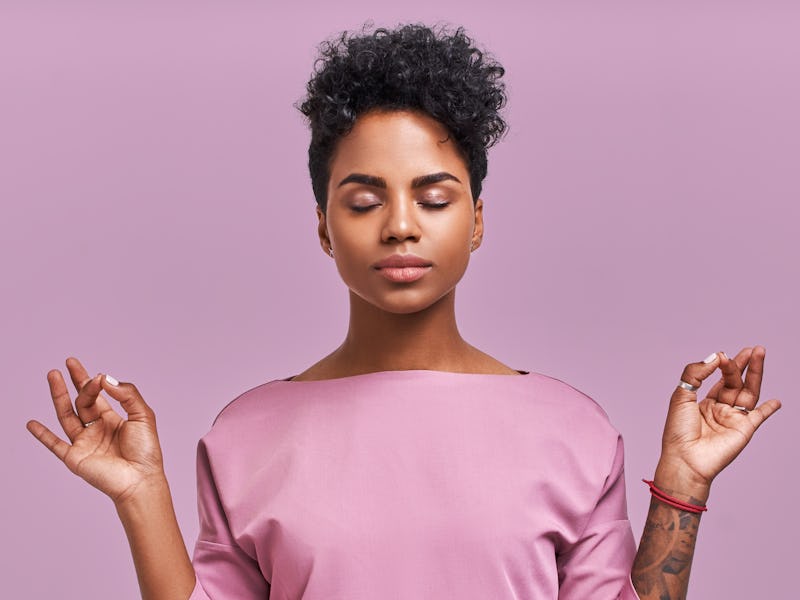Afraid of losing control, anxious people may choose worrying over relaxing
Trying to relax may actually make some people more anxious, not less.

A phrase anxious people often hear from friends and family is “just relax” but for the 40 million adults in the United States with anxiety disorders, calming down isn’t so simple. In fact, a new study published in the Journal of Affective Disorders shows that anxious people may actively resist relaxation and continue worrying in an effort to avoid a large jump in anxiety if something bad happens later.
Relaxation techniques or “applied relaxation” like deep breathing or muscle releasing, have been shown to help some anxious people. However, researchers from Pennsylvania State University determined that these relaxation attempts can actually spike anxiety. This process ignites a phenomenon called “relaxation induced anxiety” (RIA).
When engaging in relaxation activities, anxious people might feel an uptick of worry, muscle tension, anxious thoughts or images. This can make it harder to treat anxiety, and even make people feel like relaxation is dangerous. Essentially, the study participants chose worrying over relaxing to avoid a more intense spike in anxiety later. It’s a coping mechanism that operates off the rationale that if a baseline of anxiety is maintained, increased anxiety won’t feel so jarring.
Co-author and psychology professor Michelle Newman Ph.D. originally established this concept in 2011 and explained it within the Contrast Avoidance Model.
“The theory revolves around the idea that people may make themselves anxious intentionally as a way to avoid the letdown they might get if something bad were to happen,” Newman explained Monday. “This isn’t actually helpful and just makes you more miserable. But, because most of the things we worry about don’t end up happening, what’s reinforced in the brain is, ‘I worried and it didn’t happen so I should continue worrying.’”
This new study, Newman and co-author Hanjoo Kim analyzed 96 college students. Thirty-two participants were diagnosed with generalized anxiety disorder and 34 with major depressive disorder. Meanwhile, 30 individuals with neither disorder served as controls.
The paradox of relaxation training is that some anxious people simply resist relaxing.
Participants went through relaxation exercises before watching videos that may elicit fear or sadness. Next, they answered a list of questions designed to measure how sensitive they were to changes in their emotional state. After the survey, they went through a relaxation session before filling out a second survey, which measured their anxiety during the second relaxation session.
The researchers found that anxious people were more sensitive to big swings in negative emotions, like going from feeling chill to feeling afraid. Those same people were more likely to feel anxious while being led through relaxation exercises. In turn, the people who relaxation exercises are designed to aid were also the individuals most likely to be resistant to it.
Furthermore, researchers also saw similar results with participants with major depressive disorder, but the effect wasn’t as strong.
"The more you do it, the more you realize you can do it and it’s better to allow yourself to be relaxed at times."
“People may be staying anxious to prevent a large shift in anxiety, but it’s actually healthier to let yourself experience those shifts,” Newman says. “The more you do it, the more you realize you can do it and it’s better to allow yourself to be relaxed at times. Mindfulness training and other interventions can help people let go and live in the moment.”
In other words, to overcome RIA, it’s important to stick it out and ride the anxiety wave until you reach relaxation. It may also be helpful to have mental health professionals guide individuals through relaxation techniques in a safe, comfortable environment. Other effective treatments for anxiety include therapy, medication, and transcranial magnetic stimulation.
If people start avoiding relaxation techniques all together, they may miss out on effective ways to manage their anxiety. They also may not build resilience to fluctuations in anxiety, and the pattern may only get worse.
Abstract:
Background: The Contrast Avoidance Model postulates that individuals with generalized anxiety disorder (GAD) fear a sharp spike in negative emotion, and thus, prefer to worry to maintain their negative effect rather than being in a more euthymic state, such as relaxation. Relaxation induced anxiety (RIA) is a paradoxical phenomenon wherein people experience a spike in their anxiety during relaxation training. Because these phenomena may also operate among individuals with major depressive disorder (MDD), we attempted to test whether negative contrast sensitivity was a mediator of GAD or MDD in the prediction of RIA.
Methods: Individuals with GAD (n = 32), MDD (n = 34), and healthy controls (n = 30) were exposed to a negative emotional contrast by engaging with relaxation practice and then watching a negative emotional video. This was followed by the assessment of their negative contrast sensitivity. After this, participants engaged again with relaxation and RIA was measured. We examined mediation effects of negative contrast on the relationship between the diagnostic status and RIA.
Results: Negative contrast sensitivity fully mediated GAD and partially mediated MDD in predicting RIA. Conclusions: Our findings support the hypotheses that negative contrast sensitivity is the mediator of both GAD and MDD in predicting RIA. This may have implications for assessment and treatment of GAD and MDD.